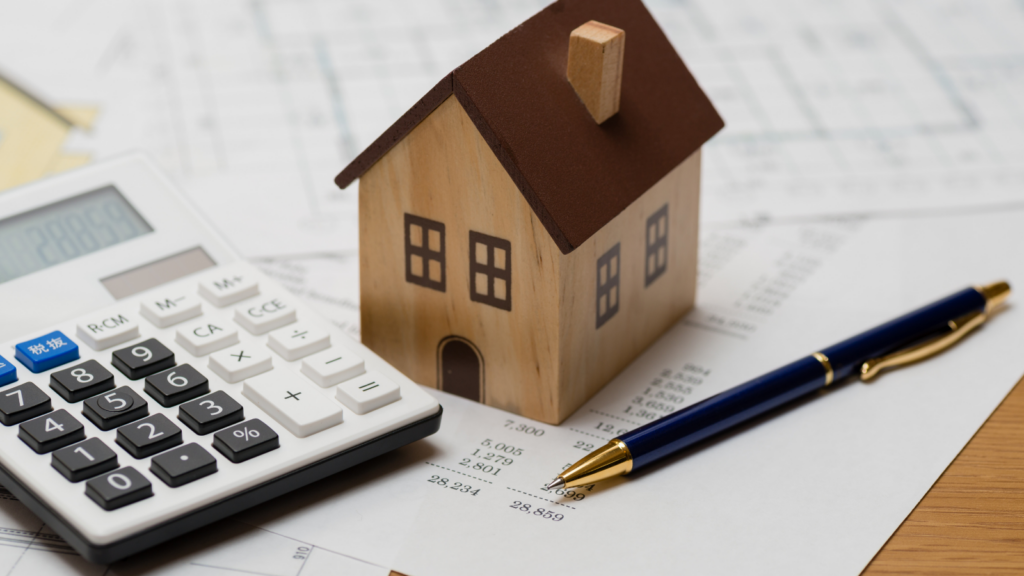There’s no question that buying a home is a huge investment. But how much money do you need to save to make a purchase? Here’s what you need to know about the costs of buying a house.

Earnest Money Deposit
An earnest money deposit is a cash deposit you make to show that you are seriously committed to buying a property. The deposit is typically held in escrow until the time that the sale is finalized and is then applied to the purchase price. Escrow is a third party (usually a title company or attorney) who holds onto money or documents during a real estate transaction.
The amount of the earnest money deposit varies but is typically 1-3% of the purchase price. For example, if you’re buying a $200,000 home, your earnest money deposit could be as much as $6,000.
In some cases, the earnest money deposit may be non-refundable if the buyer backs out of the deal for reasons other than those stipulated in the contract.
Your Down Payment
When you’re ready to purchase a home, one of the first things you’ll need to decide is how much you’ll need for a down payment.
A down payment is a cash-out-of-pocket expense not typically covered in your home mortgage loan. The amount you’ll need to pay will depend on the type of loan you’re getting. For example, a conventional home mortgage typically requires a 20% down payment, meaning that on a $200,000 property, you’d need to pay $40,000 upfront.
However, there are mortgage loan programs available that allow for smaller down payments, such as the Federal Housing Administration (FHA) loan, which only requires a 3.5% down payment on a property. VA and USDA loans may also require less than a conventional home mortgage loan for those who qualify.
Down payments are a vital part of the home-buying process because they help to determine how much you’ll need to finance. The more money you can put down upfront, the less you’ll have to finance, and your monthly payments will be lower.
Closing Costs
Closing costs are fees associated with your home purchase due at closing when you sign the final documents and get the keys to your new home.
Closing costs are an out-of-pocket expense that ranges between 2-6% of the sales price of the home you’re buying. So, if you’re buying a $200,000 home, you can expect to pay anywhere from $4,000 to $12,000 in closing costs.
Some lenders may allow you to incorporate your closing costs into your mortgage at a significantly higher interest rate, meaning you’ll pay thousands of dollars more over time than you would have if you paid them at closing. So be sure to ask about all your options before making a decision.
Typical closing costs include:
Loan origination fee: A loan origination fee in your closing costs is a charge assessed by the lender for processing a new mortgage application. This fee covers the costs incurred by the lender to underwrite and close a loan.
Credit report fee: A credit report fee is charged by the credit bureau that prepares your credit report for the lender.
Title search and insurance: A title search and insurance policy protects you and the lender against any claims that may arise regarding property ownership.
Recording fees: Recording fees are charged by your local government office to officially record the sale of your home.
Appraisal fee: An appraisal fee is charged by the appraiser who evaluates the property and assigns it a value.
Inspection: An inspection is generally done at the buyer’s expense to assess the property’s condition and identify necessary repairs.
Homeowners insurance: Homeowners insurance is required by most lenders and protects you against damages to your home or property.
Property taxes: Property taxes are local taxes assessed on your property by the government.
HOA Fees
A homeowner’s association, or HOA, is a group that manages a community of homes. Many houses that are for sale are located within an HOA. If you buy a house that is part of an HOA, you will be required to pay dues. The dues could add hundreds of dollars to your monthly mortgage.
The money from the dues is used to pay for things like landscaping, pools, and other amenities. It is crucial to find out how much the dues are before you buy a house to budget for it.
You should also find out what the HOA rules are before you purchase a home. The rules could include things like what color you can paint your house or whether or not you can have a pet. Breaking the rules could result in fines.
An Emergency Fund
An emergency fund is an essential financial cushion when unexpected expenses pop up or you find yourself in a challenging situation.
An emergency fund should be enough to cover your mortgage and living expenses for 3-6 months, so you’re not putting yourself at risk of foreclosure or eviction if you lose your job or face another financial hardship.
Additionally, having an emergency fund can help you avoid the pitfall of going into debt if your home needs repairs or maintenance – such as replacing a broken water heater or fixing a leaky roof, as you’ll have the money on hand to cover those costs without having to put them on a credit card.
An emergency fund provides peace of mind and security in knowing that you’re prepared for anything life throws your way.
Conclusion
When buying a house, it’s essential to factor in all the associated costs, so you’re not caught off guard. This includes the earnest money deposit, down payment, closing costs, moving expenses, and an emergency fund. By being prepared for these costs, you can avoid any unwelcome surprises.
Talk with your buyer’s real estate agent, lender, and financial advisor to better understand all the costs associated with buying a house. They can help you create a budget and ensure you’re prepared for everything involved in the home-buying process.

